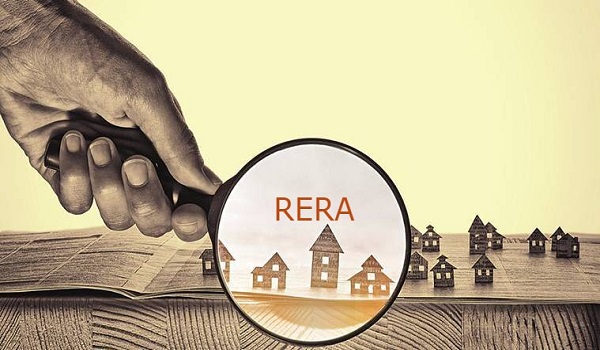Types of Real Estate Property in India: An Easy Guide for Beginners

India's real estate sector is one of the most dynamic and fast-growing industries. Simply imagine all the possibilities real remoteness holds, which real estate covers everything, starting with busy cities and tower apartments/ condos to quiet towns with open plots.
It is in the best interest to be a beginner and learn about the types of Real Estate property first before embarking into buying, selling, or investing.
Be it a prospective investment property in Rajkot, or a modern apartment in Delhi, each of the categories will guide your decision-making process and help you make future-wise decisions and gain in the future.
Why Understanding Real Estate Types Matters?
India’s real estate industry is among the fastest-growing markets and contributes substantially to the economy. Not every property serves the same purpose, however. Some properties are for living, some for business, and some for investment or farming.
Knowing the types of real estate property on the market helps buyers, sellers, and investors plan, knowing they have an investment depending on budget, purpose, and future positive impact on a property and its benefits to an occupation.
What Is Real Estate?

In the most fundamental terms, real estate refers to land as well as any kind of structure that is securely grounded to land. This can be in the form of houses, buildings, a factory, or even fields. Unlike cars or jewelry, which are movable property, real estate is immovable property. Real estate is more than just structures - it includes ownership rights, use rights, and property rights.
In India, real estate is much more than shelters or office spaces - it is an investment and wealth creation vehicle. Buyers/investors often select real estate to buy a product that they can occupy, rent, or sell at a higher price. Before plunging into the process, it is imperative to be aware of the major types of real estate property existing in India.
Key Components of Real Estate
It would be more sensible to start with the fundamental constituents of the real property before plunging into the categories:
Land: The basis of all real estate, including vacant land, natural resources, and everything below and above (i.e., anything growing, or in the air).
Improvements: Also called "permanently affixed improvements," these are any modifications that have been made such as houses, fences, or buildings attached to the land.
Property Rights: The rights to own, control, and use the land or structures on it.
Main Types of Real Estate Property in India
In the Indian context, real estate can be segmented into a number of different categories. Every category has a different purpose and is utilized by different kinds of buyers or investors. Let's break them down:
1. Residential Property

The most prevalent, and probably the most desirable in India, is residential. Residential property is divided into:
Apartments and Flats: Mostly found in cities; apartments and flats run the gamut from affordable units to luxury high-rise apartments.
Independent Homes and Villas: The independent home or villa is a standalone home that has privacy and exclusivity. A villa typically has gardens and amenities.
Townhouses: Multi-story homes similar to apartment-style living and ownership with adjoining walls.
Builder Floors: Individual floors that are sold independently of each other within low-rise buildings.
Gated Communities: Modern-day residential lifestyle communities with shared amenities such as parks, a gym or gym access, and swimming pools.
For beginners, residential properties are often the easiest to enter into because it’s easy to fund with home loans. A residential property in Rajkot would be perfect for a beginner because of its emerging infrastructure and affordability.
2. Industrial Property
Industrial properties are essentially used for production, manufacturing, or warehousing purposes. The most common examples of industrial properties are:
Factories: Buildings for either small scale or large scale manufacturing.
Warehouses: Storage facilities for goods and raw materials.
Logistics Hubs: Properties dedicated to business involved in distribution and transportation.
R&D Centres: Facilities used for, and dedicated to research and innovation.
This type of property often attracts larger investors or business owners. With India's focus for 'Make in India' and rapidly industrializing economy, there is a serious demand for industrial real estate space. For potential entrepreneurs, purchasing an industrial property in Rajkot could be a good opportunity to take advantage of given the significant industrial strength of the city.
3. Commercial Property
Commercial real estate is designed to facilitate business functions. The various forms include:
Office Spaces: Beginning with micro-co-working systems, all the way to corporate towers.
Retail Mounts and Centres: Stores, showrooms, and malls.
Offer: Restaurants, resorts, and hotels.
Healthcare Spaces: Clinics, Laboratories, and Hospitals.
Commercial real estate typically offers far greater returns for rental than residential, but requires a larger investment. In most of the growing cities like Rajkot, commercial facilities continue to grow, which makes long-term investment in them attractive.
4. Agricultural Property
Agricultural land can only be used for agriculture, horticulture, and other specified agricultural purposes. Agricultural land in India is subject to state laws, and in many states, agricultural land ownership is limited to farmers.
Agricultural property can be further categorized into:
Harvest land
Orchard/plantation land
Farm houses ( agricultural land)
Agricultural property can yield safe returns but in any investment, be sure to check the legal limitations first.
5. Mixed-Use Property
As its name implies, mixed-use real estate has features of residential property, commercial property, and, in some cases, industrial property. Some of the examples include:
Townships that provide apartments, schools, offices, and malls.
Buildings that provide retail on the lower level and living spaces above.
Integrated developments that provide everything from health care to entertainment.
It is one of types of real estate property. It is gaining popularity in metro areas as it saves clients time and provides them with convenience. In this way, mixed-use projects can provide rental income and property appreciation for a beginner investor.
6. Special-Purpose Properties
Some types of real estate address very specific needs. They are more difficult to transition to other uses. These types of properties include:
Official Government offices.
Stadiums, auditoriums, and museums.
Health care institutions and special hospitals.
Religion such as temples, mosques or churches
Institutions of education, such as schools and colleges
These types of buildings are important to our community, infrastructure, and development.
7. Other Property Categories
Freehold Property: In this, the buyer takes the land and the building under permanent possession. You are currently given the right to dispose it as you wish, sell it, rent it, or even give it to your children. The majority of independent houses in India can be categorized in this group. It is what is considered the safest and most preferred choice for beginners.
Leasehold Property: In this situation, you do not own the land forever. You have the right to use the property for a set number of years (usually from 30 to 99). When the lease is up, you may have to renew your lease or return it to the landowner. Most flats or commercial spaces in certain large cities are leasehold.
Investment Property: These are properties bought to make money, not to stay in. Some purchase them to earn rental income or resell them at a higher price in the future. To illustrate, an individual can purchase a flat or a shop in a developing town in order to collect a constant rent.
All of this classification is relevant for legal purposes as well as financial and resale value. And it is always recommended for the novice property purchaser to check whether their selected property is freehold or leasehold prior to purchasing.
Factors to Consider Before Choosing a Property
Understanding what real estate property is is the beginning. Before buying real estate, ask yourself a few questions:
Investment Purpose: Do you want this property to be your personal property, do you want it as a rental, or do you want to resell it?
Budget and Financing: Make sure your Budget has a factor of hidden costs such as GST, registration, and maintenance.
Location: Property in bigger cities like Rajkot, for instance, tends to appreciate a lot more than in smaller towns and villages.
Legal Control: You need to seek legal aspects of title deeds, encumbrance certificates, approvals, etc.
Market Trends: Make sure you are aware of property trends; there are schemes coming up and other policies of revenue authorities.
Real Estate Trends in India
The Indian real estate market is steadily increasing. This is encouraged by various work schemes by the government, such as Housing for All, Smart City initiatives, and foreign investment.
This provides opportunities for every segment of real estate investment. So many cities like Bengaluru, Pune, and Rajkot are becoming popular hubs for investors.
Let's say you are thinking of investing in a property in Rajkot. You can find economical residential plots, and close by unharnessing commercial hubs, and industrial parks. The infrastructure development and growing demand of Rajkot make it a good place to invest.
Conclusion
To people new to real estate, it can appear complicated but separating it into categories makes it much easier. There are in general, six different types of real estate property in India: residential, commercial, industrial, agricultural, mixed-use, and special-purpose.
If this is your first investment, first define your ultimate purpose, budget, and where you want to invest. For example, if you are seeking long-term growth in an emerging city, then buying property in Rajkot will prove useful for you.
Real estate investment can be one of the most fruitful investments in life if you research and get proper guidance.
FAQs
Q1. What are the main types of real estate property in India?
Ans: India’s real estate market is broadly divided into residential, commercial, industrial, agricultural, mixed-use, and special-purpose properties. Each category serves a different purpose and is suitable for different types of buyers and investors.
Q2. Which type of property is best for beginners to invest in?
Ans: For beginners, residential property—such as apartments or independent homes—is usually the easiest and safest option. It is easier to finance with home loans, has stable demand, and is simple to understand compared to commercial or industrial real estate.
Q3. What is the difference between freehold and leasehold property?
Ans: A freehold property gives the buyer complete ownership of the land and building permanently. A leasehold property allows ownership for a limited period (typically 30–99 years), after which the lease must be renewed. Always check this before buying.
Q4. Can non-farmers buy agricultural land in India?
Ans: This depends on the state laws. In many Indian states, only registered farmers can purchase agricultural land. Some states allow non-farmers to buy agricultural land under specific conditions. Always verify the legal rules of the respective state before investing.
Q5. What factors should I consider before choosing a property to invest in?
Ans: Your decision should be based on purpose (living, renting, or reselling), budget, financing options, location, legal clearance, market trends, and long-term growth prospects. Cities like Rajkot, Bengaluru, and Pune currently offer strong appreciation potential.








ADD COMMENT